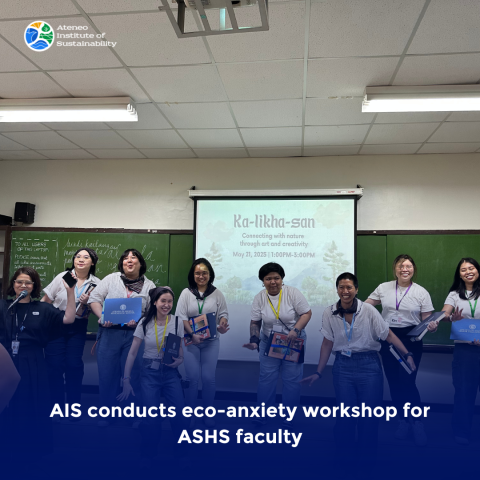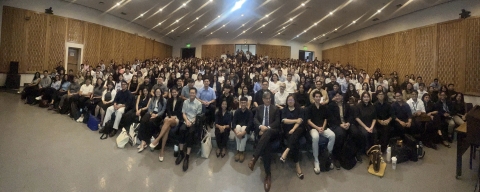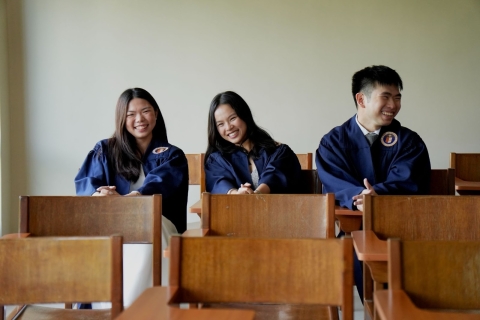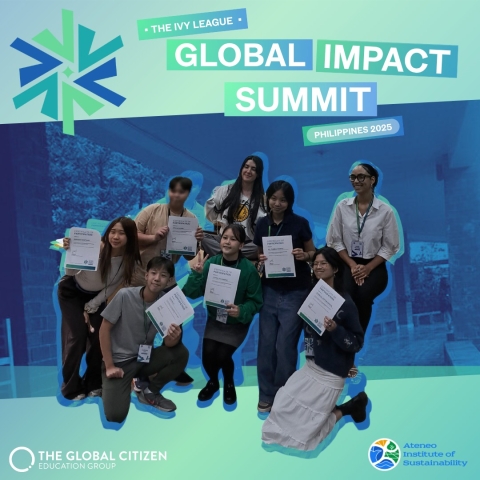Starting the new year with the 27th ICMI Study Conference
16 Mar 2025 | Frankie Fran (PhD Math Ed)
[ The condensed version of this article has been published in the ICMI Newsletter March 2025 at the link https://www.mathunion.org/icmi/icmi-newsletter-march-2025#on-page-3. ]
The 27th ICMI Study Conference with the theme, “Mathematics Education and the Socio-Ecological” was held from 22-25 January 2025 at Ateneo de Manila University, Philippines. It was the first time that the Philippines hosted an ICMI Study Conference, considered to be the most diverse international engagement held onsite in the university since the Covid-19 pandemic. Sixty-eight (68) mathematics education researchers came to this invitation-only conference. The following countries were represented: Australia, Brazil, Canada, Colombia, Germany, Great Britain, India, Indonesia, Italy, Israel, Japan, Mexico, New Zealand, Norway, Philippines, Sweden, Switzerland, South Africa and United States of America.
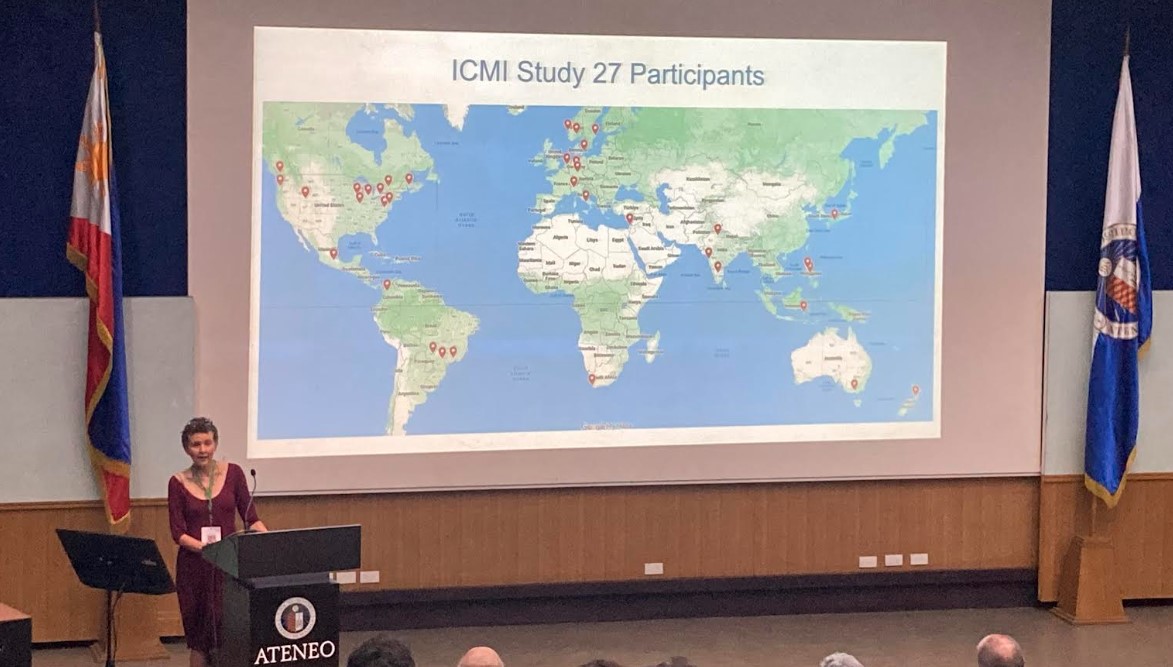
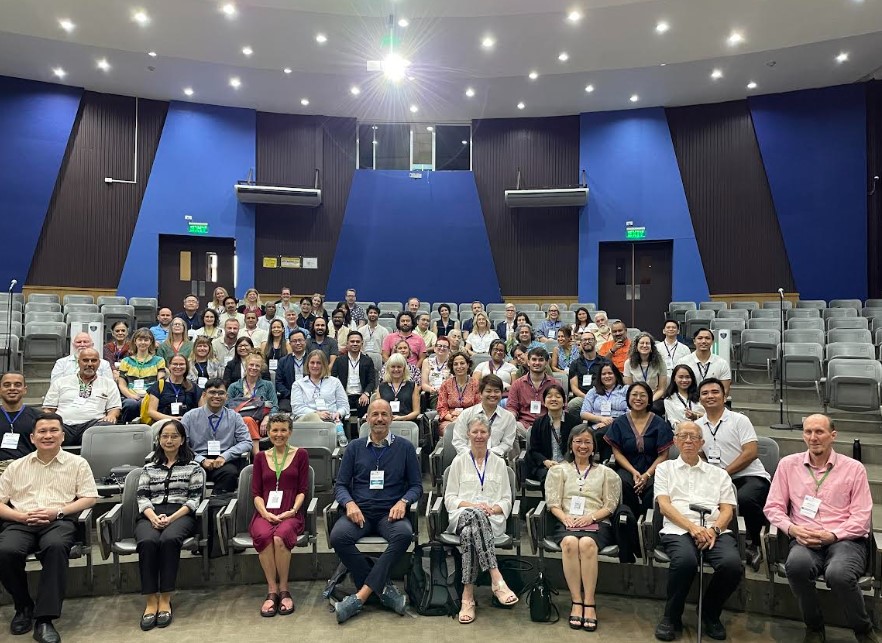
ICMI Study 27 is led by co-chairs Alf Coles (United Kingdom) and Kate le Roux (South Africa), together with the International Program Committee members (IPC) Marcelo Borba (Brazil), Arindam Bose (India), Vince Geiger (Australia), Rochelle Gutiérrez (United States of America), Mariam Makramalla (Egypt), Armando Rojas-Solares (Mexico), Nathalie Sinclair (Canada), Paola Valero (Sweden), and Catherine Vistro-Yu (Philippines), and supported by the Ex-Officio members, Frederick Leung (Hong Kong), Merrilyn Goos (Australia) and Jean-Luc Dorier (Switzerland). The Local Organizing Committee (LOC) had a Core Team led by Catherine P. Vistro-Yu, Chair, together with Angela Fatima H. Guzon and Lester C. Hao as Co-Chairs, Maria Alva Q. Aberin as Finance Officer, and Errol Matthew C. Garcia for the Events and Logistics. They were assisted by volunteer students of the Department of Mathematics.
ICMI Study 27 explores the interplay between mathematics education and the socio-ecological. It acknowledges the intricate relationships and connections between people and nature, both living and non-living, including its complex interdependencies. The Study focused on four distinct themes with the main aim of exploring the different theories and perspectives on the socio-ecological and its potential contribution to mathematics education. The themes were: (A) Aims of mathematics education; (B) Scales of mathematics education; (C) Resources of and for mathematics education; and (D) Mathematics education futures.
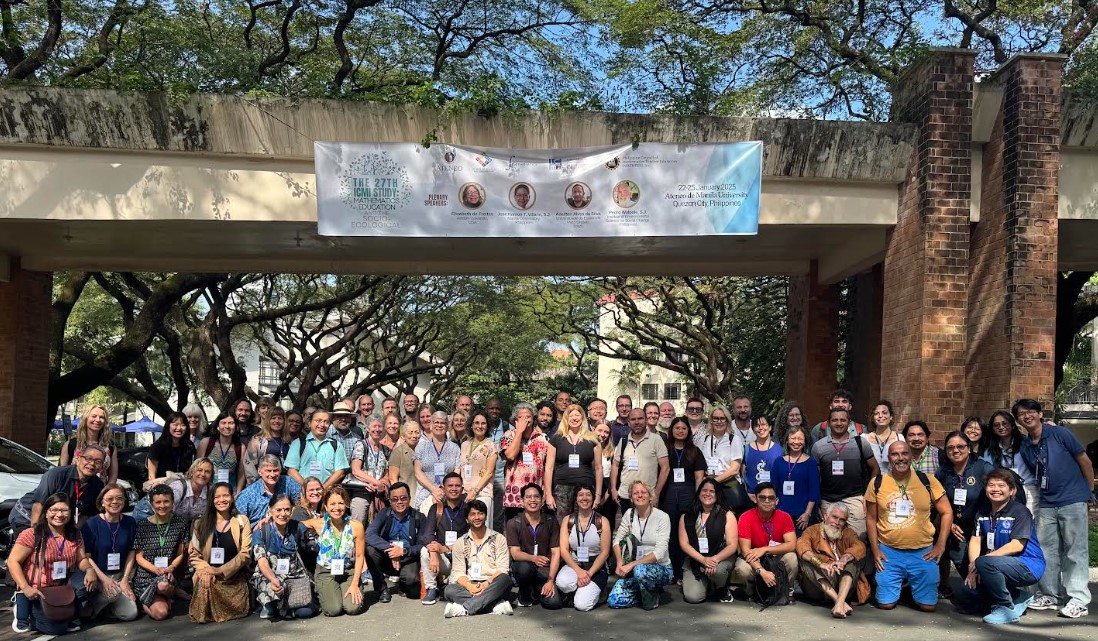
The Scientific Programme of the Study Conference included a Welcome and Opening Program, four (4) Plenary sessions, seven (7) Working Group sessions, one (1) Cross Working Group session, two (2) Campus Engagement Tours, and a Conference Dinner. Plenary 1 was facilitated by the IPC Co-Chairs, Alf Coles and Kate le Roux which followed from the Community Activity held during the conference registration. In Plenary 1, the participants were instructed to form groups of three, preferably with those from a different geographic region and academic background or expertise and to engage in conversations about their output from the Community Activity.
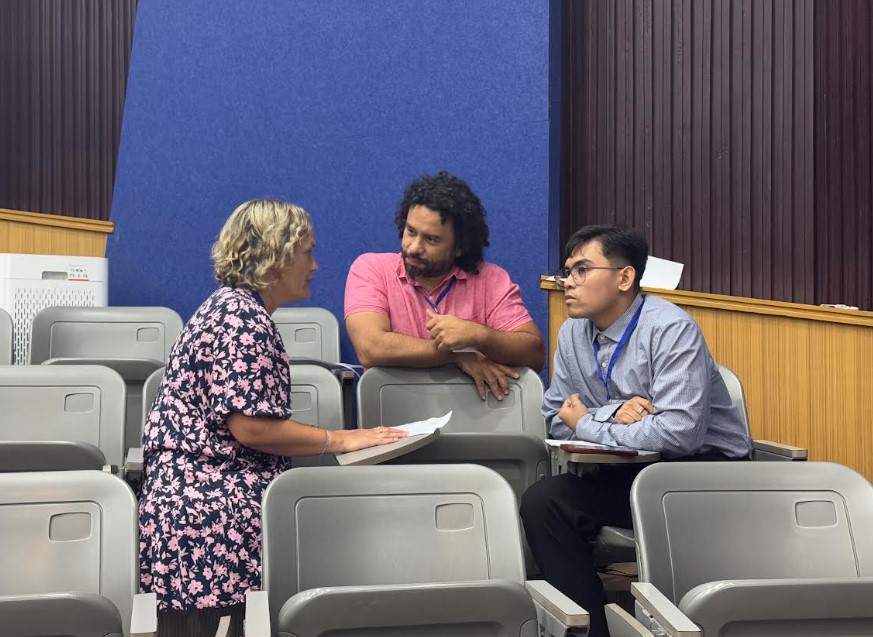
Plenary Sessions 2 and 3 each featured complementary presentations by two scholars followed by a conversation with the audience facilitated by Nathalie Sinclair and Alf Coles, respectively. In Plenary 2, Filipino climate scientist Jett Villarin, S.J. discussed what climate action might mean for mathematics education and highlighted that climate action needs to be communicated using the power of numbers as a story telling tool. Complementing his presentation was Elizabeth de Freitas who emphasized the concept of rethinking mathematics education as it makes a radical shift, particularly on embracing a “more-than-human” perspective. She highlighted and acknowledged the importance of developing mathematical thinking beyond human realities and challenged anthropocentric biases.
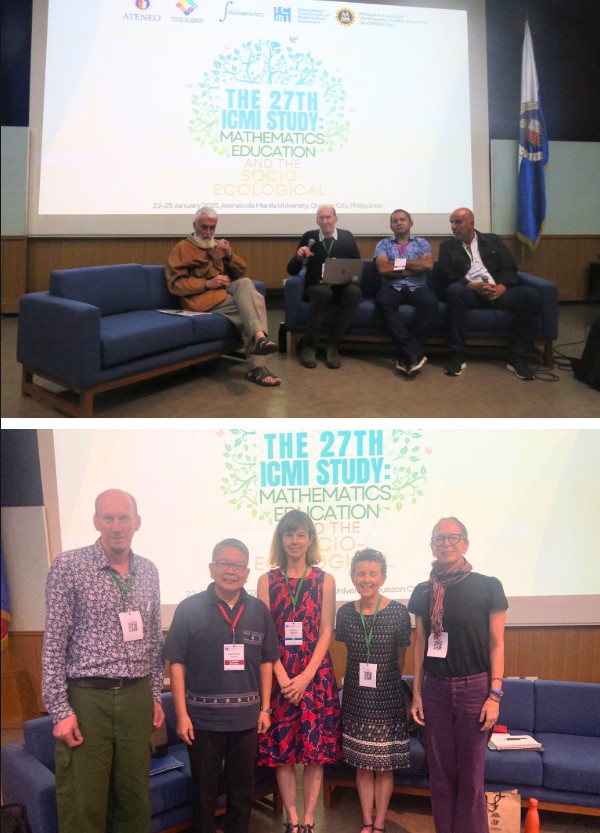
Below: (Plenary 2) Alf Coles, Jett Villarin, S. J., Nathalie Sinclair, Kate Le Roux, Elizabeth de Freitas
In Plenary 3, Adailton Alves da Silva who was assisted by Marcelo Borba, spoke about his extended thoughts on ethnopedagogies as a socio-educational knowledge, following from what he presented at the 12th Mathematical Education and Society Conference (MES12). He gave a detailed analysis of the different domains fundamental to the ethnopedagogy of the A'uwẽ/Xavante people, specifically on the cosmological, socio-ecological and socio-educational dimensions. Complementing his presentation was Pedro Walpole, S.J., an environmental scientist who shared his experiences living with Pulangiyēn Indigenous community in Bukidnon, Philippines. He highlighted the importance of understanding the indigenous communities’ connections to their ancestral domains as well as the essentiality of utilizing the mother tongue to reinforce their cultural ecology. Plenary 4 served as the closing session and was again facilitated by Alf Coles and Kate le Roux. The session opened conversations on the future steps for the 27th ICMI Study indicating the timelines for possible courses of action. The highlight of Plenary 4 was the sharing by representatives and volunteers from the different Study Themes of their thoughts on the Study Conference.
The Working Group Sessions and the Cross Working Group Session dominated the conference programme as the goal was to present at the end of the four days potential chapters in each theme that will comprise the Study Volume. The four theme groups were holed up in their assigned rooms for the most part of each day. On the last day, a ‘poster session’ was held to allow for closer engagements across themes as well as conversations about each proposed chapter. The Study Theme Groups were led and facilitated by: Paola Valero and Nathalie Sinclair (Theme A); Rochelle Gutiérrez and Armando Solares-Rojas (Theme B); Marcelo Borba and Vince Geiger (Theme C); and. Arindam Bose and Catherine Vistro-Yu (Theme D). Prior to the Study Conference, all invited participants were sent instructions to prepare for the Study Conference. Preparations mainly involved reading all papers within the themes to ensure optimum engagement during the Study Conference. For the actual conference, the Theme Group Leads prepared session activities that were tailored to engage the participants in productive discussions about their papers as each group aimed to have some concrete plans for possible chapters by the end of the Study Conference.
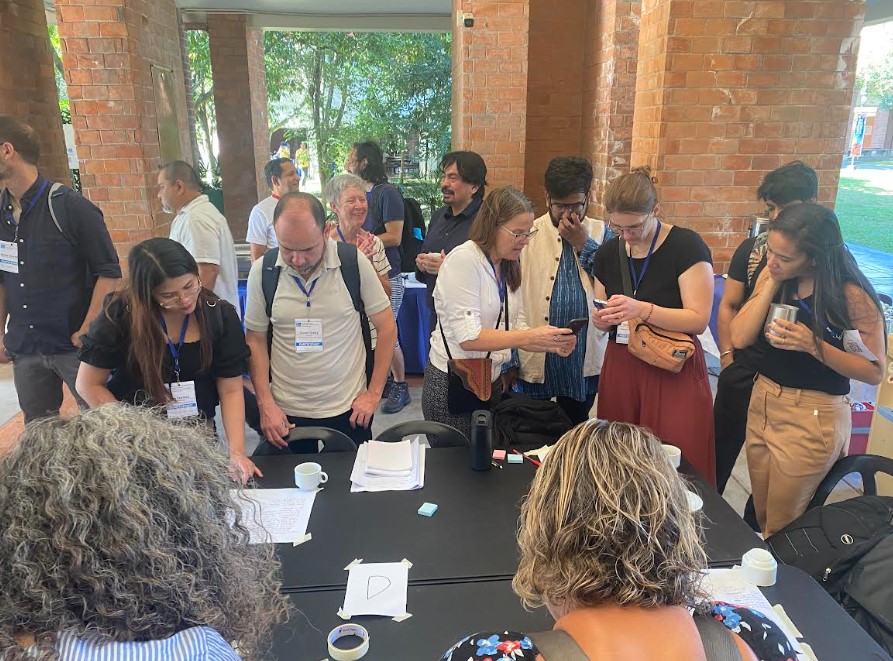
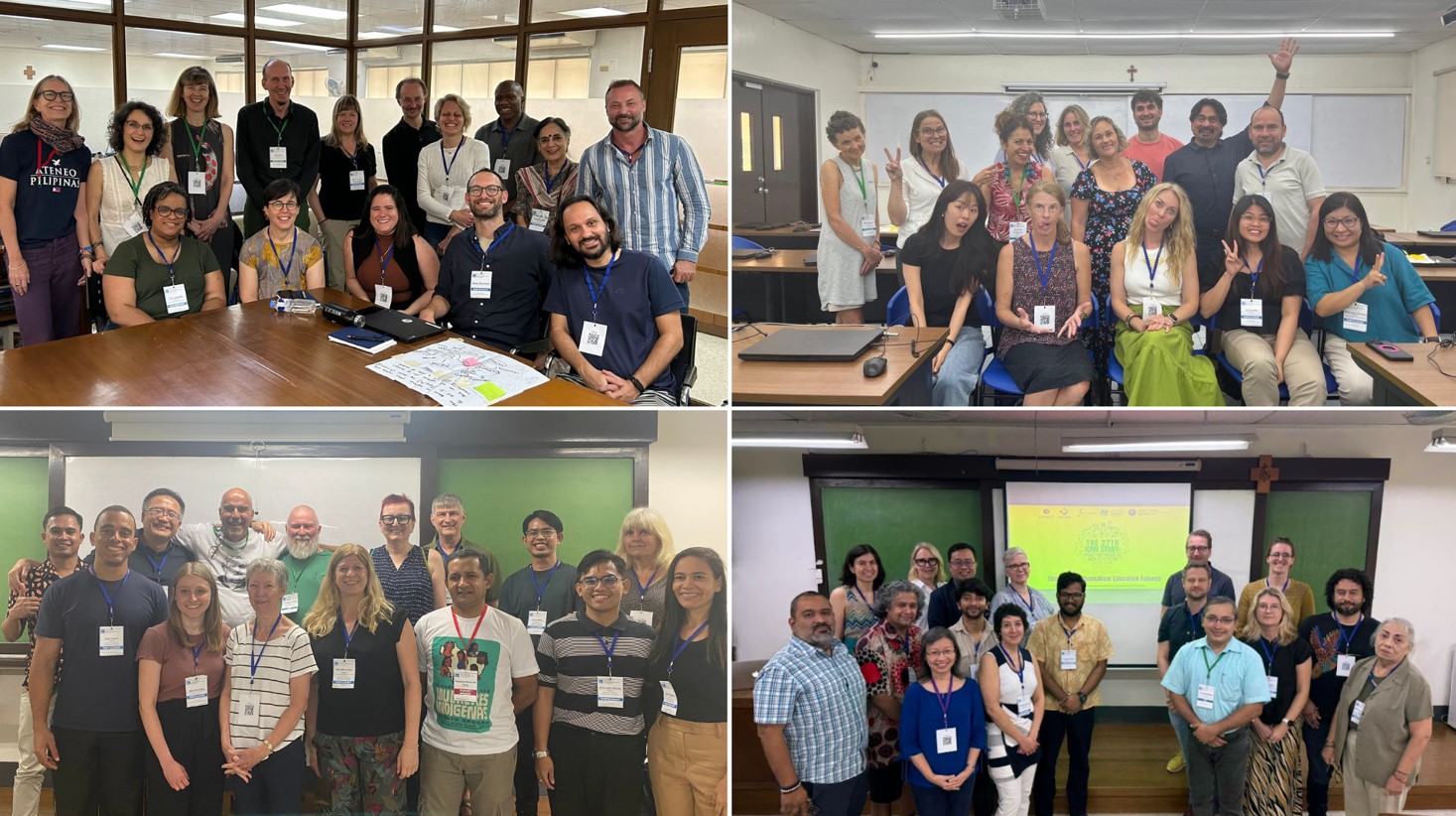
The Study Conference ended on a hopeful note as participants were buoyed by the collaborative spirit and camaraderie that developed throughout the four days. The work continues and the international mathematics education community can look forward to a new ICMI Study publication, hopefully in the next two years.





